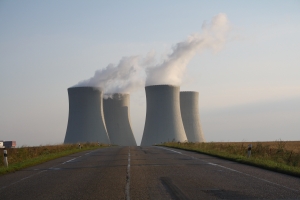On February 27, The American Institute of Architects (AIA) and nearly 1,000 businesses from across the country urged Congress to reject efforts to repeal the law setting goals for reducing fossil fuel use in federal buildings by 2030.
The letter comes in response to reports that the oil and gas lobby pushed to include a repeal of Section 433 of the Energy Independence and Security Act in the bipartisan Shaheen-Portman energy efficiency bill.
“It is unfortunate that the fossil fuel industry has demanded gutting federal energy laws through in the Shaheen-Portman bill,” said AIA CEO Robert Ivy, FAIA. “Sens. Shaheen and Portman have spent more than two years crafting a bipartisan energy efficiency bill. We support the original bill, which has many admirable provisions, but cannot in good conscience support legislation that undermines laws that help the federal government save taxpayers money by conserving energy.”
Last year, the Senate Energy and Natural Resources Committee approved the otherwise bipartisan Shaheen-Portman bill that encourages families, businesses and the government to save energy. It is not clear whether the revised bill can move forward in its current form.
“We remain committed to finding consensus solutions to improve Section 433,” Ivy said. “But so long as its opponents demand a full repeal, we do not believe the bill serves the interests of the American public.”
The letter states that design and construction companies across the country are already designing buildings that meet, and in some cases exceed, the current targets in Section 433. “In fact, Section 433 has enabled design firms to develop new design strategies that they are now using to help private-sector clients reduce their energy loads,” the letter states.
A full text of the letter can be found here. A “Myth vs. Fact” document about Section 433 of EISA can be found here.
Related Stories
Energy Efficient Roofing | Oct 28, 2022
Rooftop mini turbines can pair with solar panels
A new type of wind turbine can pair well on roofs with solar panels, offering a double source of green energy generation for buildings.
Energy-Efficient Design | Oct 24, 2022
Roadmap shows how federal buildings can reach zero embodied carbon emissions by 2050
The Rocky Mountain Institute (RMI) has released a roadmap that it says charts a path for federal buildings projects to achieve zero embodied carbon emissions by 2050.
Energy-Efficient Design | Oct 14, 2022
A DOE software suite is helping SmithGroup optimize its designs’ energy efficiency
AutoBEM can run more than 200,000 energy models in an hour.
| Sep 22, 2022
Gainesville, Fla., ordinance requires Home Energy Score during rental inspections
The city of Gainesville, Florida was recently recognized by the U.S. Dept. of Energy for an adopted ordinance that requires rental housing to receive a Home Energy Score during rental inspections.
| Sep 7, 2022
Use of GBCI building performance tools rapidly expanding
More than seven billion square feet of project space is now being tracked using Green Business Certification Inc.’s (GBCI’s) Arc performance platform.
Sponsored | BD+C University Course | Aug 24, 2022
Solutions for cladding performance and supply issues
This course covers design considerations and cladding assembly choices for creating high-performance building envelopes — a crucial element in healthy, energy-efficient buildings.
| Aug 23, 2022
New Mass. climate and energy law allows local bans on fossil fuel-powered appliances
A sweeping Massachusetts climate and energy bill recently signed into law by Republican governor Charlie Baker allows local bans on fossil fuel-powered appliances.
| Aug 22, 2022
Less bad is no longer good enough
As we enter the next phase of our fight against climate change, I am cautiously optimistic about our sustainable future and the design industry’s ability to affect what the American Institute of Architects (AIA) calls the biggest challenge of our generation.
| Aug 16, 2022
DOE funds 18 projects developing tech to enable buildings to store carbon
The Department of Energy announced $39 million in awards for 18 projects that are developing technologies to transform buildings into net carbon storage structures.
| Aug 15, 2022
Boston high-rise will be largest Passive House office building in the world
Winthrop Center, a new 691-foot tall, mixed-use tower in Boston was recently honored with the Passive House Trailblazer award.

















